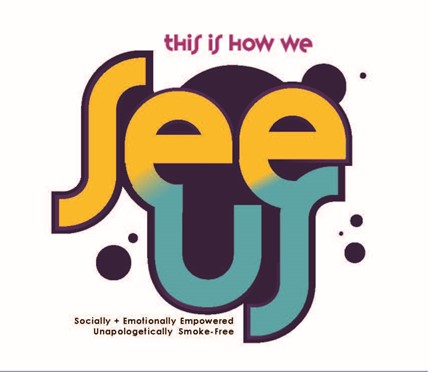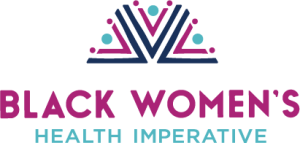Black Women's Health Imperative Launches Be Seen, HBCU Student Anti-Tobacco Grant Award Program
Mobilizing Black Women Students to live Socially, Emotionally, Empowered - Unapologetically Smoke-Free

Atlanta, GA, March 31, 2021 --(PR.com)-- Black Women's Health Imperative (BWHI) announces the launch of Be Seen, a $180K anti-tobacco grant award program earmarked for women's groups at seven historically Black colleges and universities. The program has selected Tuskegee University, Alabama State University, Southern University, Dillard University, Tennessee State University, Mississippi Valley State University and Jackson State University to be the catalysts for creative, on-campus solutions to tackle the current tobacco and vaping epidemic.
The Be Seen grant award program is part of the Socially, Emotionally Empowered – Unapologetically Smoke-Free (SEE-US) program, BWHI's broader effort, which educates, trains and mobilizes HBCU Women as they combat the impact smoking and vaping has on the health and wellness of the Black community.
Beginning April 1 - May 31, students may submit creative proposals that should outline an integrated on-campus engagement campaign that calls out the tobacco industry for its targeted and pernicious undermining of the health and well-being of Black Women, their families, and communities. Entries should creatively detail how they will "Be Seen" executing their plans on campus, thus putting the spotlight on the urgent need to Be Seen as the next generation of advocates and decision-makers. Grants are awarded on a competitive basis and vary in amount, based on the approved budget requests of selected proposals. Up to $27,000 can be awarded per HBCU. If multiple student groups are selected per each HBCU, the award amount will be allocated among the groups.
"This is a social justice issue. It's time for young women to call out the tobacco industry by sharing their ideas and their collective voice to stand up, speak out, and be seen holding the industry accountable while making a positive and lasting impact on their HBCU campuses, and by extension, their communities, and families. Today, nearly 85% of African American smokers use menthol cigarettes, compared to just 29% of white smokers, and products like e-cigarettes, hookahs, and cigarillos continue to fuel this upward trend," says Linda Goler Blount, BWHI president and CEO.
For decades, the tobacco industry carefully executed a cross-sector marketing strategy to addict the Black community to menthol cigarettes. This strategy is now being used in the vaping industry, where we have seen an increase in marketing of their products to Black youth, especially during COVID-19. Many of these companies purport to promote health by offering pandemic-themed promotions such as free giveaways of protective masks with the purchase of nicotine e-liquid products and offering COVID-19 themed discounts.
"Given that smoking and vaping increase the risk of COVID-19 complications, it is more critical than ever that we empower young black women with the tools they need to champion the fight against the tobacco industry from further ravaging our communities," says Blount.
About SEE-US
SEE-US is a program developed to mitigate the rise in tobacco and vaping use among Black women 18-24. Supported by a $1 million-dollar grant from the Robert Wood Johnson Foundation, SEE-US harnesses the advocacy of Black women to lead today's fight against the tobacco and vaping industry. By exposing its impacts on young black women, their families, and their communities, SEE-US elevates the tobacco and vaping industry's predatory marketing practices as a social and racial justice issue. Smoking-related illnesses are the number one cause of death in the Black community, surpassing all others, including AIDS, diabetes, cancer, and heart disease. These realities are especially critical given the disproportionate physical and social-emotional impact of the COVID-19 pandemic on the Black community. Learn more at bwhi.org/SEE-US
About Black Women's Health Imperative
The Black Women's Health Imperative (BWHI) is a national nonprofit organization dedicated to advancing health equity and social justice for Black women across the lifespan through policy, advocacy, education, research, and leadership development. The organization identifies the most pressing health issues that affect the nation's 22 million Black women and girls and invests in the best strategies and organizations that accomplish its goals. For more information, please visit bwhi.org.
The Be Seen grant award program is part of the Socially, Emotionally Empowered – Unapologetically Smoke-Free (SEE-US) program, BWHI's broader effort, which educates, trains and mobilizes HBCU Women as they combat the impact smoking and vaping has on the health and wellness of the Black community.
Beginning April 1 - May 31, students may submit creative proposals that should outline an integrated on-campus engagement campaign that calls out the tobacco industry for its targeted and pernicious undermining of the health and well-being of Black Women, their families, and communities. Entries should creatively detail how they will "Be Seen" executing their plans on campus, thus putting the spotlight on the urgent need to Be Seen as the next generation of advocates and decision-makers. Grants are awarded on a competitive basis and vary in amount, based on the approved budget requests of selected proposals. Up to $27,000 can be awarded per HBCU. If multiple student groups are selected per each HBCU, the award amount will be allocated among the groups.
"This is a social justice issue. It's time for young women to call out the tobacco industry by sharing their ideas and their collective voice to stand up, speak out, and be seen holding the industry accountable while making a positive and lasting impact on their HBCU campuses, and by extension, their communities, and families. Today, nearly 85% of African American smokers use menthol cigarettes, compared to just 29% of white smokers, and products like e-cigarettes, hookahs, and cigarillos continue to fuel this upward trend," says Linda Goler Blount, BWHI president and CEO.
For decades, the tobacco industry carefully executed a cross-sector marketing strategy to addict the Black community to menthol cigarettes. This strategy is now being used in the vaping industry, where we have seen an increase in marketing of their products to Black youth, especially during COVID-19. Many of these companies purport to promote health by offering pandemic-themed promotions such as free giveaways of protective masks with the purchase of nicotine e-liquid products and offering COVID-19 themed discounts.
"Given that smoking and vaping increase the risk of COVID-19 complications, it is more critical than ever that we empower young black women with the tools they need to champion the fight against the tobacco industry from further ravaging our communities," says Blount.
About SEE-US
SEE-US is a program developed to mitigate the rise in tobacco and vaping use among Black women 18-24. Supported by a $1 million-dollar grant from the Robert Wood Johnson Foundation, SEE-US harnesses the advocacy of Black women to lead today's fight against the tobacco and vaping industry. By exposing its impacts on young black women, their families, and their communities, SEE-US elevates the tobacco and vaping industry's predatory marketing practices as a social and racial justice issue. Smoking-related illnesses are the number one cause of death in the Black community, surpassing all others, including AIDS, diabetes, cancer, and heart disease. These realities are especially critical given the disproportionate physical and social-emotional impact of the COVID-19 pandemic on the Black community. Learn more at bwhi.org/SEE-US
About Black Women's Health Imperative
The Black Women's Health Imperative (BWHI) is a national nonprofit organization dedicated to advancing health equity and social justice for Black women across the lifespan through policy, advocacy, education, research, and leadership development. The organization identifies the most pressing health issues that affect the nation's 22 million Black women and girls and invests in the best strategies and organizations that accomplish its goals. For more information, please visit bwhi.org.
Contact
Black Women's Health Imperative
Monica Coleman
202-787-5931
www.bwhi.org
Monica Coleman
202-787-5931
www.bwhi.org
Multimedia
Categories

